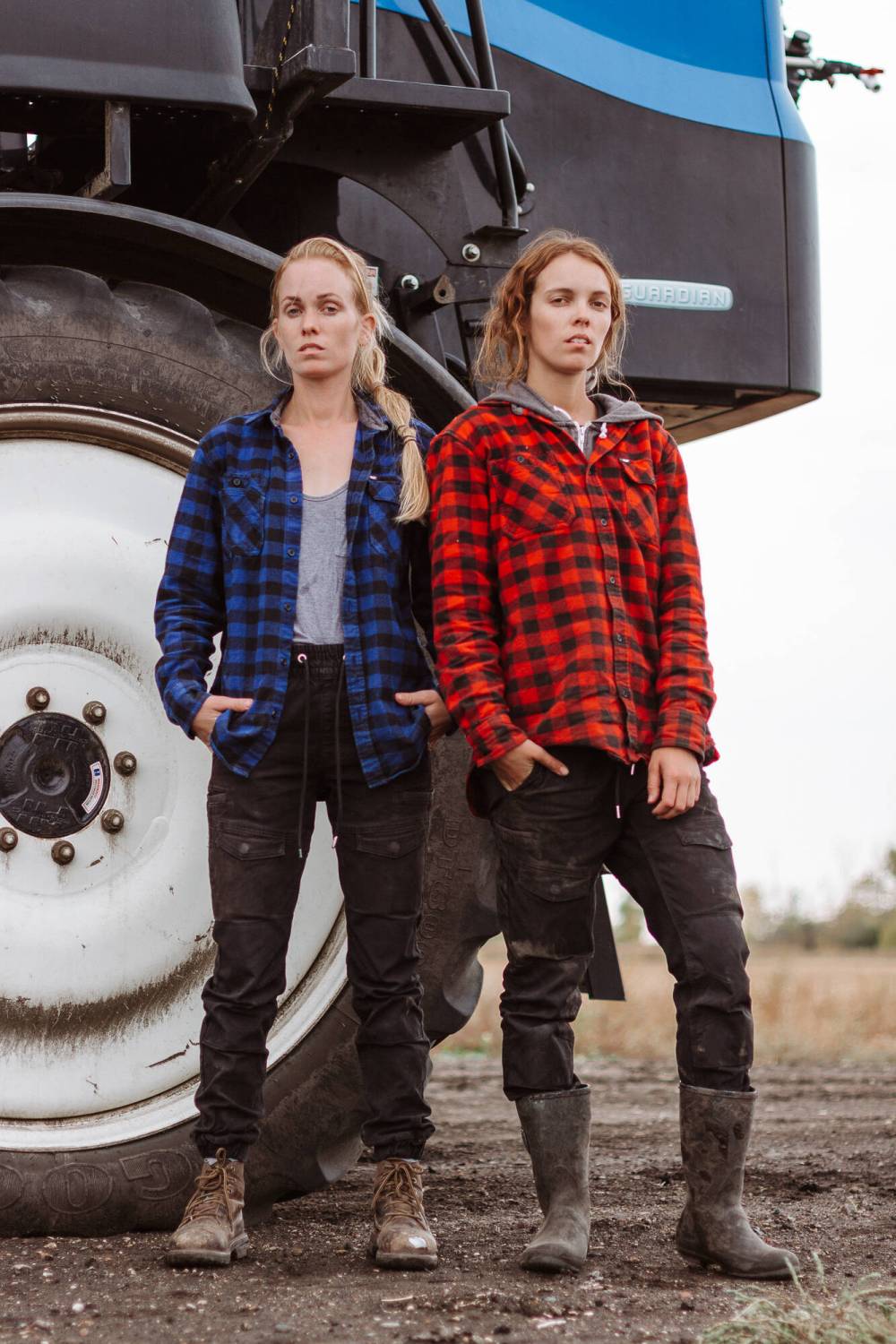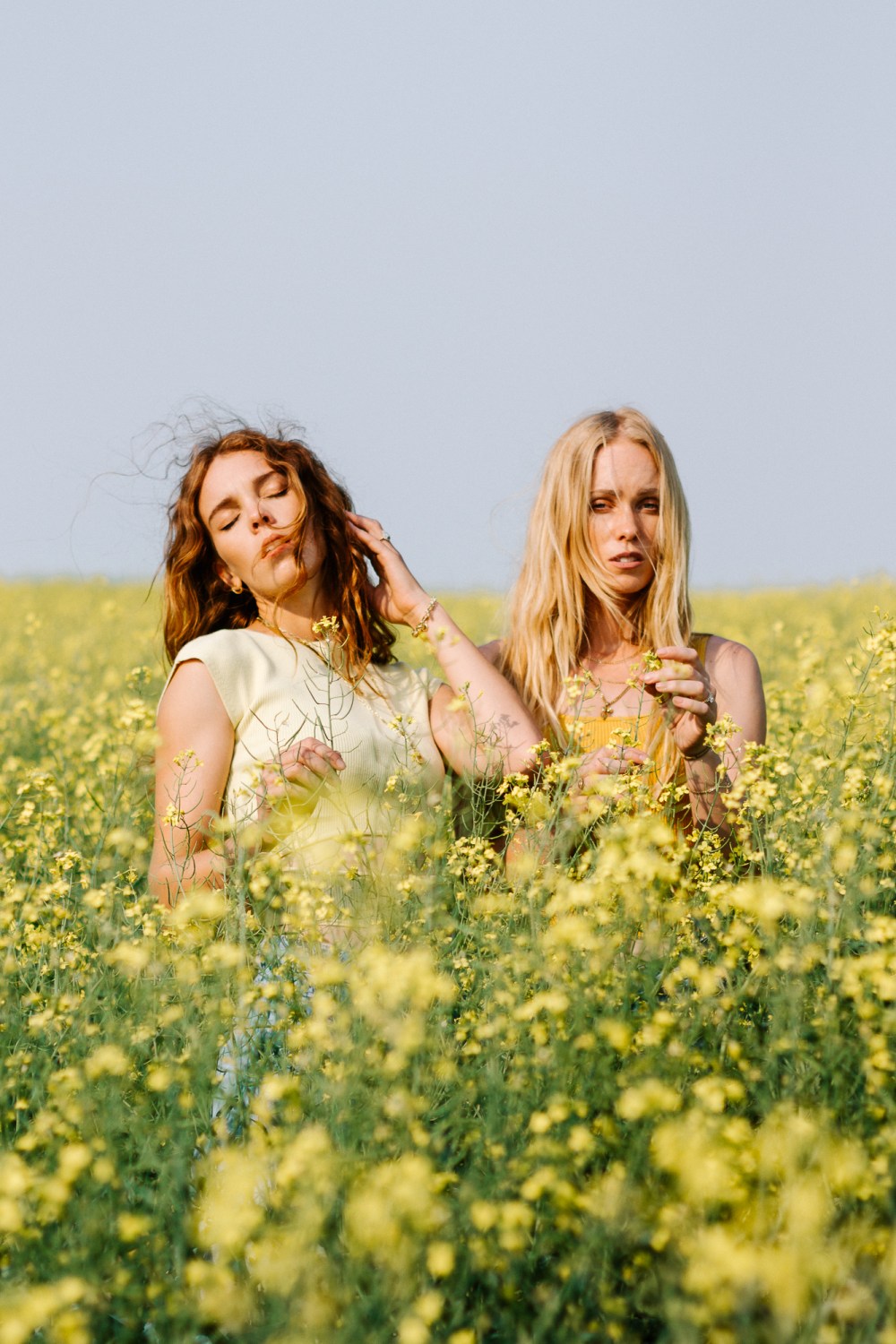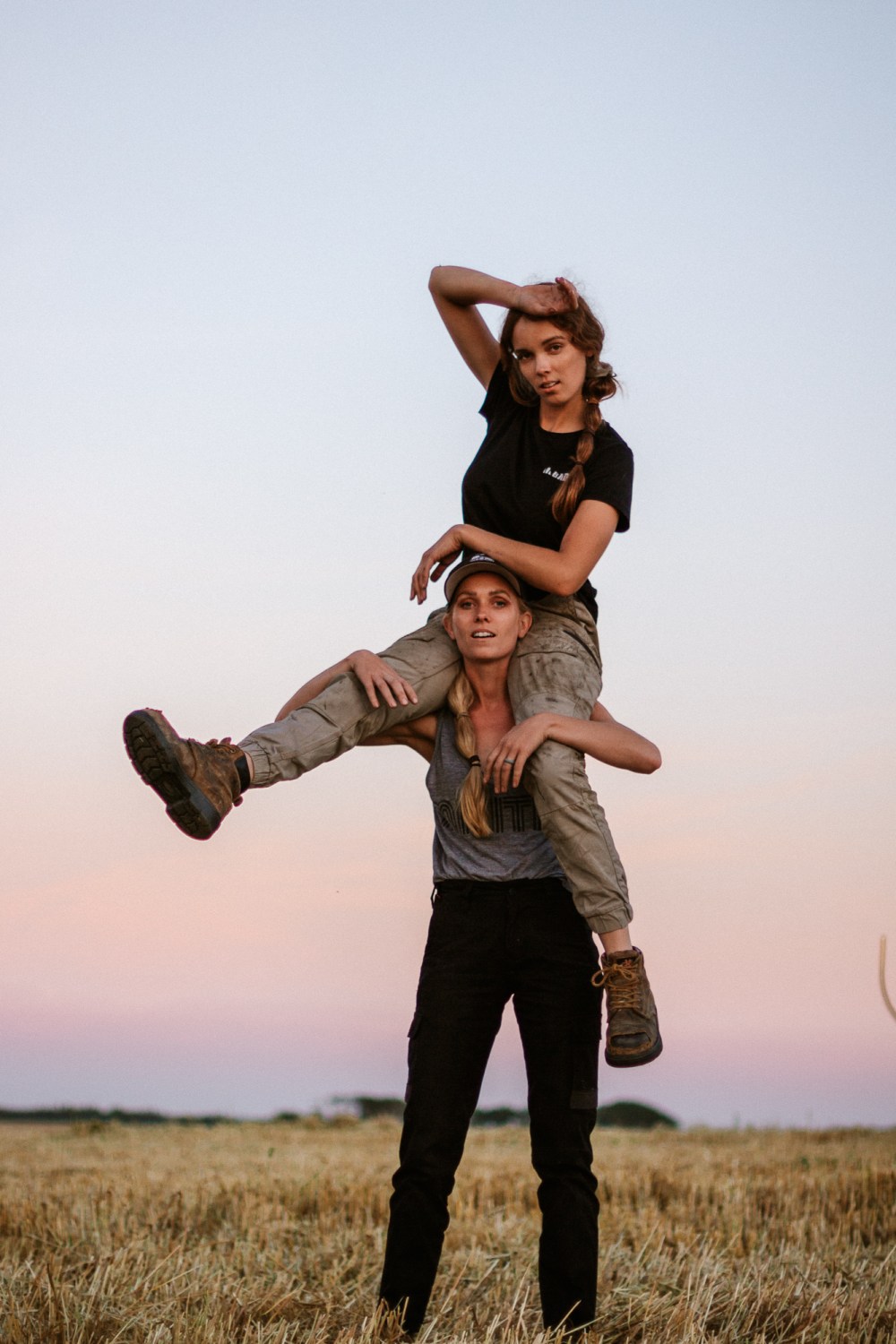Sisters post content on Instagram explaining farm life while incorporating fashion
Advertisement
Read this article for free:
or
Already have an account? Log in here »
To continue reading, please subscribe:
Monthly Digital Subscription
$19 $0 for the first 4 weeks*
- Enjoy unlimited reading on winnipegfreepress.com
- Read the E-Edition, our digital replica newspaper
- Access News Break, our award-winning app
- Play interactive puzzles
*No charge for four weeks then billed as $19 plus GST every four weeks. Offer only available to new and qualified returning subscribers. Cancel any time.
Read unlimited articles for free today:
or
Already have an account? Log in here »
Hey there, time traveller!
This article was published 05/01/2023 (718 days ago), so information in it may no longer be current.
Once upon a time, Frozen’s Anna and Elsa were farmers.
No, that’s not right. But Cassandra and Stefanie Lepp have been confused for the Disney princesses before, and they’re farmers.
The sisters’ more than 35,000 social media followers know them as The Tulepps.

“The more people see women doing the (farm) jobs, the less weird it’s going to be for everyone to see it,” Cassandra said. “Eventually, I hope nobody looks at us and says, ‘You don’t look like a farmer.’”
Cassandra, 33, and Stefanie, 29, post content on Instagram explaining their farm life while also incorporating fashion.
“(It’s) to show you don’t have to look a certain way to do something, and… to broaden our audience so that we (aren’t) just speaking to other farmers,” Stefanie said.
She modelled after graduating high school but quit to focus on the family’s farm and businesses. It cut her weekly commute from the Brandon area to Winnipeg.
The sisters previously traveled to agriculture trade shows, selling augers to farmers. They noticed a lack of women.
“Some of the farmers that came to talk to us didn’t really respect what we had to say,” Stefanie said. “They thought that we weren’t actually farmers, and that we were just models hired to stand there.”
Really, they were on payroll for Springland Manufacturing, which their dad partially owns. They grew up riding combines during harvest and now handle the groundwork while their father sprays crops.
They launched their Instagram account in 2018 — branding themselves The Tulepps, a nod to their last name — in response to their trade show experiences.
“There was never any ‘we wish we had boys’ (from our parents). That came from the outside,” Cassandra said. “Not all people were like that… but the ones that were were pretty loud about it, and we just thought that was unacceptable… for the next generation to hear.”
They posted daily during the first year on Instagram, amassing more than 10,000 followers, Cassandra said. The sisters have turned their brand into a business, selling necklaces and tables.

They’ve received comments from females of varying age groups, including mothers, Cassandra said.
“(Farm wives are) running equipment, they’re a part of the farm, they’re making decisions, and I don’t think the world really acknowledges that,” Cassandra said. “There’s nothing about farming that makes it so only men can do it.”
The number of female farm operators in Manitoba has risen over the past years, according to Statistics Canada data.
The agency reported 5,150 women farmers in 2021, a jump from 4,785 in 2016. Female farmers made up 26.5 per cent of the industry in 2021.
“Through life and the media and women talking with women, you come to… learn about the gender gap, you come to learn about your potential and you are inspired by everything that is going on around you,” said Laura Lazo, chair of Manitoba Women in Agriculture and Food.
Still, women in agriculture face barriers, Lazo said. Farming requires time and money — two things mothers might not have, she said.
Financing can be difficult to access for females. Some men in the industry will bypass woman operators and ask for a man in charge, Lazo said.
“There is more work to be done,” she said, adding women are more commonly found in lower ranks.
The Tulepps see TikTok as their next step to reaching people and changing opinions.

“We have a lot of ideas — we just have to learn how to make those apps work for us without taking too much of our time,” Cassandra said. “We have to really reboot what we’re doing.”
They’re dipping their toes in Instagram videos — filming shots of working on canola fields or snappy clips of them matching outfits with farm equipment.
“We’re just as powerful and important as the men,” Cassandra said.
Manitoba is also home to the highest proportion of young farmers in the nation, according to Statistics Canada data.
More than 11 per cent of the province’s farmers identified as younger than 35. Nationally, the age group accounts for 8.6 per cent.
gabrielle.piche@winnipegfreepress.com

